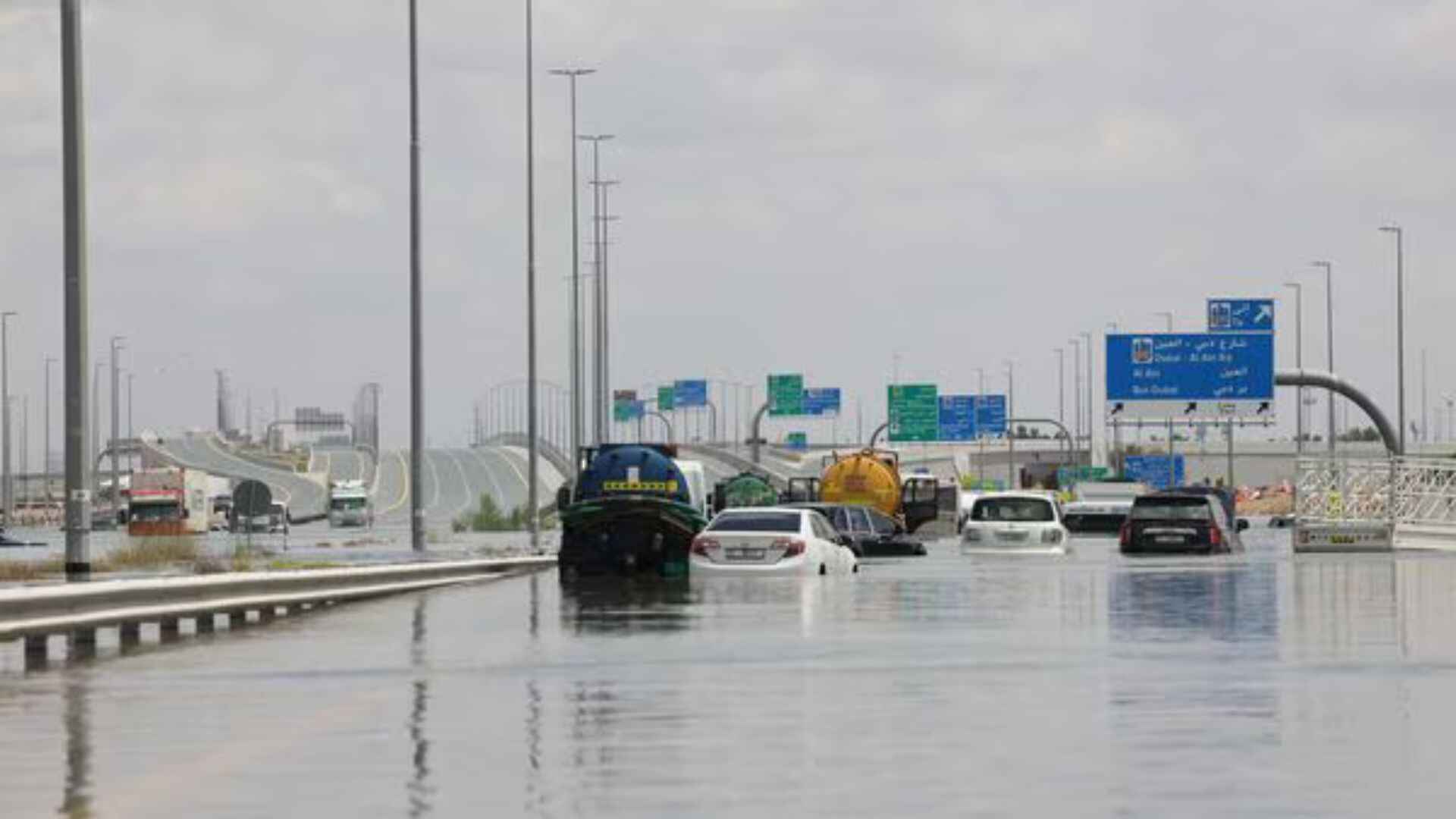Dubai faced significant disruption on Tuesday due to heavy rainfall, with numerous roads, residential areas, businesses, and other locations submerged in water. Operations at Dubai airport were temporarily halted. Despite its reputation for arid weather and hot temperatures, let’s explore how Dubai implements cloud seeding.
In a video shared by the well-known YouTuber Nas Daily last year, he provided viewers with an inside look into how Dubai generates rainfall for itself. In the video, Nas Daily initially describes Dubai as a “very dry” city with minimal rainfall. He then showcases the workings of the National Center of Meteorology in Dubai and illustrates how they facilitate the creation of rain.
The video depicts individuals at the National Center of Meteorology monitoring the sky and searching for clouds. Subsequently, researchers, aided by a plane, disperse specially formulated nanosalt beneath the clouds. These salt particles attract water molecules, eventually leading to rainfall once sufficient water accumulates. Nas Daily further explains in the video how, at times, the salt is also spread atop mountains. While the cloud seeding process is executed, the exact location of rainfall is not always guaranteed.
As per Bloomberg, cloud seeding involves injecting chemicals into existing clouds and is not a standalone remedy. It has proven effective when employed to stimulate rain clouds in mountainous regions or to augment rainfall. However, there’s conflicting scientific data regarding its efficacy on clouds unlikely to produce rain, particularly in flat areas and during droughts. Some experts contend that under these conditions, cloud seeding becomes a political tool.
Data from the nonprofit Desert Research Institute indicates that ongoing seeding operations have increased the snowpack by approximately 10% annually in certain areas across the Nevada mountains in the United States. Similar positive outcomes have been observed in the Snowy Mountains of Australia, the Sierra Madre Range in Wyoming, and the Snowy Range in Wyoming.























